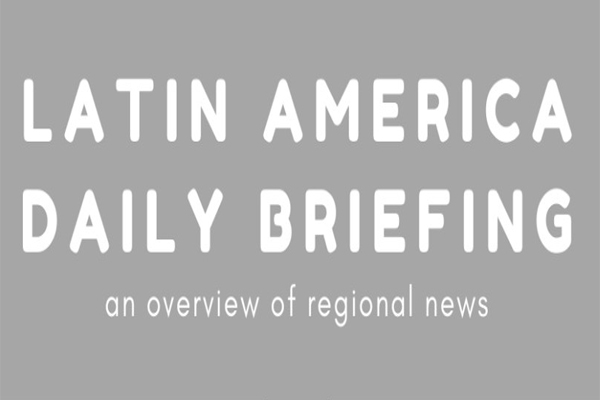
Today is the one-year anniversary of the assassination of Haitian President Jovenel Moïse, a murder that thrust Haiti’s already fragile political system deeper into dysfunction. With no political solution in sight, “the picture remains grim with a seeming state of lawlessness taking hold in parts of the country,” reports the New York Times.
“The Western Hemisphere’s poorest nation is in an anarchic spiral fueled by political paralysis, economic meltdown and out-of-control gang violence that has exposed the U.S.-backed government as impotent,” writes the Washington Post editorial board.
The investigation into the killing is stalled in Haiti, part of a broader problem of a justice system plagued by protests, robberies, gang violence and death threats, reports Voice of America. Judges and legal clerks in the case have been threatened and told to change witness testimony, reports NYT.
Haitian police have made more than 40 arrests in connection with the killing, including 18 ex-Colombian soldiers who have complained of torture in detention, a lack of food and access to showers or bathrooms.
The U.S. investigation into the murder has raised suspicions of a link between the assassins and U.S. intelligence agencies, including the C.I.A., reports the New York Times.
Three key suspects in the case are being held in the United States, where they are charged with “conspiracy to commit murder or kidnapping outside the United States.” Yesterday one of the suspects, Haitian businessman Rodolphe Jaar, pleaded not guilty in a Miami federal court. (Associated Press)
In the meantime, Haiti is rudderless. Prime Minister Ariel Henry has promised to create a new provisional electoral council, which is responsible for organizing general elections, but that hasn’t happened. There hasn’t been a Parliament because the government failed to organize elections in 2019, and Moïse dismissed most lawmakers in early 2020 and ruled by decree for more than a year before he was killed. Attempts to form a coalition government have faltered in recent weeks, reports the Associated Press.
News Briefs
Migration
- The grim situation — where many face hunger and rampant violence — in Haiti has pushed many citizens to flee in the past year, making potentially deadly voyages aboard rickety boats filled with hundreds of people that have repeatedly turned up on the shores of nearby nations, reports the Associated Press.
- The number of Haitians deported by U.S. Immigration and Customs Enforcement fell dramatically in last month. TheBiden administration has allowed more people from Haiti to enter the country through legal ports of entry to seek asylum, reports NBC News.
- The recent tragic deaths of dozens of migrants in a truck trying to enter the U.S. highlight growing desperation in Guatemala, that is increasingly driving even children to seek opportunities out of the country. (Al Jazeera)
Chile
- Electoral campaigns to approve or reject Chile’s proposed new constitution officially began yesterday, and high-profile political and public figures have started picking sides, reports Reuters. (See the Chile Constitutional Updates)
- The Economist urged Chilean voters to reject the draft magna carta presented by the Constitutional Convention earlier this week. The scathing piece calls the draft “a confusing mess, full of woolly language that more or less guarantees decades of squabbling about what it actually means.” It also voices concern that “the draft creates a portfolio of socio-economic rights that could blow up the budget.” (See the Chile Constitutional Updates and Tuesday’s post.)
Peru
- A group of Peruvian opposition lawmakers seek to oust Vice President Dina Boluarte in relation to an alleged conflict-of-interest constitutional violation. It’s part of a broader attack on President Pedro Castillo, who faces corruption probes of his own, reports Reuters.
Brazil
- Brazilian Judge Edson Fachin, who heads the country’s electoral court, warned the country is at risk of facing a “more severe” incident than the January 6, 2021 attack on the United States Capitol in a presentation at the Wilson Center in the U.S. (Al Jazeera)
- The murders of Dom Phillips and Bruno Pereira highlight the vast gulf between President Jair Bolsonaro’s lawless and exploitative approach to the Amazon and his opponent, Luiz Inácio Lula da Silva’s proposed reforms, argues Andre Pagliarini in The New Republic.
Regional
- Soaring food and energy prices related to Russia’s invasion of Ukraine have pushed 71 million more people around the world into poverty, according to a new United Nations Development Program. (Associated Press)
- The Eastern Caribbean Supreme Court has ruled that a law in Antigua and Barbuda that criminalizes gay sex is unconstitutional. The ruling also said the twin-island nation’s 1995 Sexual Offenses Act “offends the right to liberty, protection of the law, freedom of expression, protection of personal privacy and protection from discrimination on the basis of sex.” (Associated Press)
- El Salvador is trying to become a bitcoin hub to attract tourism and reduce its poverty rate — a move other countries in Central America have eyed as well. But so far the cryptocurrency bet has backfired, reports the Washington Post. (See yesterday’s briefs.)
Suriname
- Suriname is considered a global leader in biodiversity conservation, with more than 90 per cent of its land surface covered by native forests. But Indigenous communities say their contribution to conservation is not matched by national regulations recognizing their land rights. (See this week’s Just Caribbean Updates)
Jordana Timerman/Latin America Daily Briefing
http://latinamericadailybriefing.blogspot












